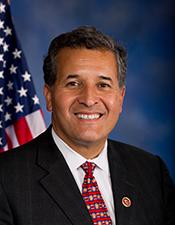0
0
0
Cabin Air Safety Act of 2023
1/31/2024, 8:15 AM
Summary of Bill HR 1293
Bill 118 hr 1293, also known as the Cabin Air Safety Act of 2023, is a piece of legislation currently being considered by the US Congress. The main purpose of this bill is to improve the safety of cabin air on commercial aircraft.
The bill requires the Federal Aviation Administration (FAA) to establish standards for the monitoring and testing of cabin air quality on commercial aircraft. This includes requirements for the detection of harmful contaminants such as carbon monoxide and other toxic fumes. The bill also mandates that airlines provide training for flight crews on how to respond to incidents of poor cabin air quality.
Additionally, the Cabin Air Safety Act of 2023 requires airlines to install carbon monoxide detectors on all commercial aircraft to alert crew members and passengers of any potential dangers. The bill also calls for the creation of a reporting system for passengers and crew members to report incidents of poor cabin air quality. Overall, the goal of this legislation is to ensure that passengers and crew members are protected from harmful contaminants in the air while flying on commercial aircraft. The bill aims to improve safety standards and increase transparency regarding cabin air quality in order to prevent potential health risks associated with poor air quality.
The bill requires the Federal Aviation Administration (FAA) to establish standards for the monitoring and testing of cabin air quality on commercial aircraft. This includes requirements for the detection of harmful contaminants such as carbon monoxide and other toxic fumes. The bill also mandates that airlines provide training for flight crews on how to respond to incidents of poor cabin air quality.
Additionally, the Cabin Air Safety Act of 2023 requires airlines to install carbon monoxide detectors on all commercial aircraft to alert crew members and passengers of any potential dangers. The bill also calls for the creation of a reporting system for passengers and crew members to report incidents of poor cabin air quality. Overall, the goal of this legislation is to ensure that passengers and crew members are protected from harmful contaminants in the air while flying on commercial aircraft. The bill aims to improve safety standards and increase transparency regarding cabin air quality in order to prevent potential health risks associated with poor air quality.
Congressional Summary of HR 1293
Cabin Air Safety Act of 2023
This bill directs the Federal Aviation Administration (FAA) to implement regulations regarding smoke or fume incidents on aircraft (excluding helicopters).
Specifically, the bill requires
- flight attendants, pilots, aircraft maintenance technicians, airport first responders, and emergency response teams to receive annual training on how to respond to incidents on aircraft;
- the FAA to develop a standardized form and system for reporting incidents involving smoke or fumes;
- the FAA to conduct an investigation after a report is submitted about incidents of smoke or fumes if anybody on the aircraft required medical attention; and
- air carriers to install and operate onboard detectors and other air quality monitoring equipment situated in the air supply system to enable pilots and maintenance technicians to locate the sources of air supply contamination, including carbon monoxide.
Read the Full Bill
Current Status of Bill HR 1293
Bill HR 1293 is currently in the status of Bill Introduced since March 1, 2023. Bill HR 1293 was introduced during Congress 118 and was introduced to the House on March 1, 2023. Bill HR 1293's most recent activity was Referred to the Subcommittee on Aviation. as of March 2, 2023
Bipartisan Support of Bill HR 1293
Total Number of Sponsors
1Democrat Sponsors
1Republican Sponsors
0Unaffiliated Sponsors
0Total Number of Cosponsors
82Democrat Cosponsors
72Republican Cosponsors
10Unaffiliated Cosponsors
0Policy Area and Potential Impact of Bill HR 1293
Primary Policy Focus
Transportation and Public WorksAlternate Title(s) of Bill HR 1293
Cabin Air Safety Act of 2023
Cabin Air Safety Act of 2023
To improve the safety of the air supply on aircraft, and for other purposes.
Comments
Sponsors and Cosponsors of HR 1293
Latest Bills
To designate the facility of the United States Postal Service located at 521 Thorn Street in Sewickley, Pennsylvania, as the "Mary Elizabeth 'Bettie' Cole Post Office Building".
Bill HR 1461December 11, 2025
Secure Rural Schools Reauthorization Act of 2025
Bill S 356December 11, 2025
Expanding Whistleblower Protections for Contractors Act of 2025
Bill S 874December 11, 2025
Shingle Springs Band of Miwok Indians Land Transfer Act of 2025
Bill HR 2302December 11, 2025
Adams Memorial-Great American Heroes Act
Bill HR 2306December 11, 2025
To designate the facility of the United States Postal Service located at 130 South Patterson Avenue in Santa Barbara, California, as the "Brigadier General Frederick R. Lopez Post Office Building".
Bill HR 2175December 11, 2025
Electric Supply Chain Act
Bill HR 3638December 11, 2025
A bill to require the Secretary of Veterans Affairs to disinter the remains of Fernando V. Cota from Fort Sam Houston National Cemetery, Texas, and for other purposes.
Bill S 1071December 11, 2025
PERMIT Act
Bill HR 3898December 11, 2025
State Planning for Reliability and Affordability Act
Bill HR 3628December 11, 2025
Cabin Air Safety Act of 2023
Bill S 615December 15, 2023





